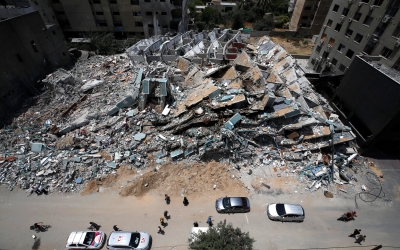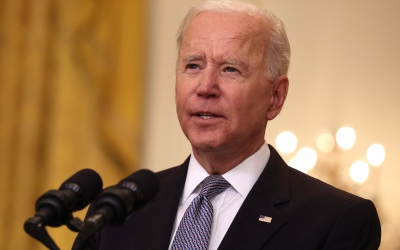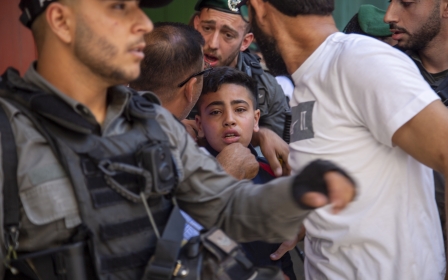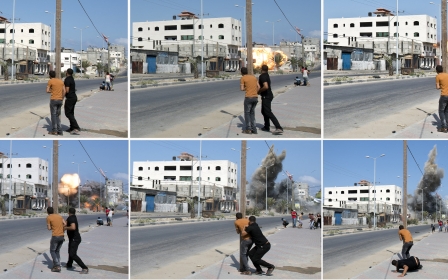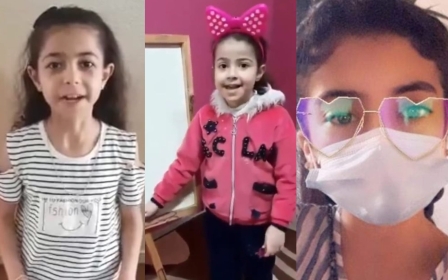No respite for Palestinians from Israel strikes as diplomatic efforts falter
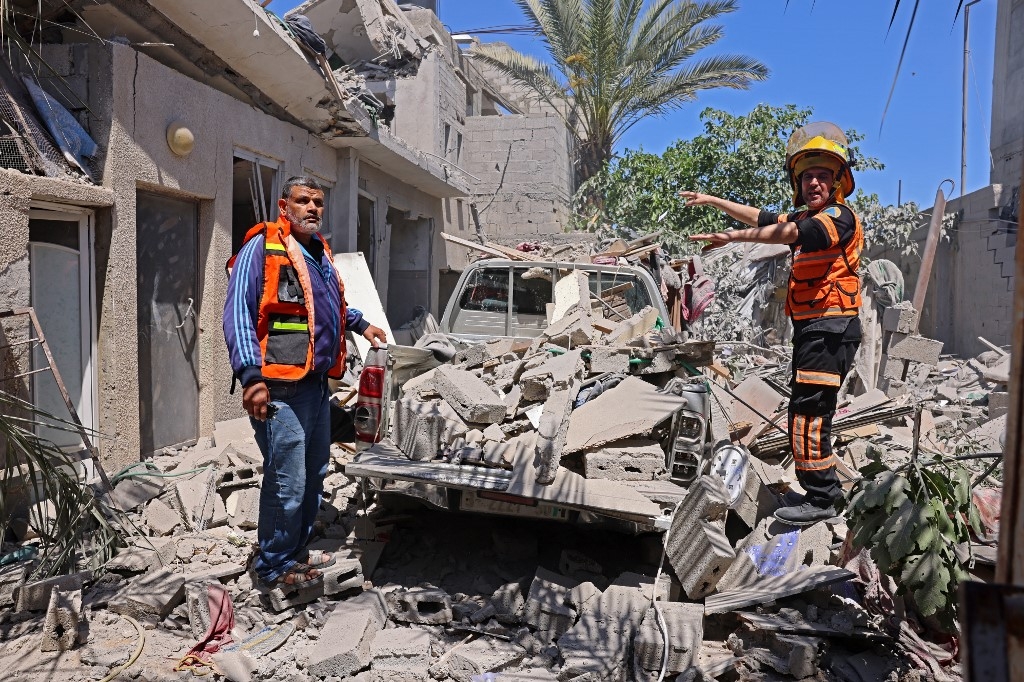
Israel's near-relentless bombing campaign raised the death toll in Gaza on Tuesday as millions of Palestinians across Israel, the occupied West Bank, and Gaza went on strike to protest continued air strikes and violent crackdowns by Israeli forces.
Gaza's health ministry reported that Israeli air strikes had killed at least 217 Palestinians, including 63 children and 36 women, since 10 May.
New MEE newsletter: Jerusalem Dispatch
Sign up to get the latest insights and analysis on Israel-Palestine, alongside Turkey Unpacked and other MEE newsletters
The Norwegian Refugee Council (NRC) said 11 children who were receiving trauma counselling from the charity were among those killed by Israeli bombing.
The death toll on the Israeli side rose to 12 after rockets fired at the southern Eshkol region killed two Thai nationals working in a factory.
In addition to the casualties, a week's worth of heavy bombardment in Gaza had obliterated buildings and roads, making it hard for emergency rescue crews to respond to new bombings.
The health ministry accused Israel of preventing the International Committee of the Red Cross (ICRC) from accessing certain health facilities in the coastal enclave.
While calls for a ceasefire have intensified, Prime Minister Benjamin Netanyahu vowed on Tuesday that Israel would continue its onslaught on the coastal enclave "as long as necessary," before a UN Security Council meeting broke up after less than an hour without issuing a statement.
Crisis diplomacy
Tuesday's UN Security Council session, the fourth since the conflict escalated, was called after the United States, a key ally of Israel, blocked the adoption of a joint statement calling for a halt to the violence.
But the latest session again closed without consensus.
"We do not judge that a public pronouncement right now will help de-escalate," US envoy Linda Thomas-Greenfield said during Tuesday's closed-door meeting, according to a diplomat.
EU foreign policy chief Josep Borrell on Tuesday strongly backed the ceasefire calls and urged Israel to act in a "proportionate" manner.
US President Joe Biden said on Monday that he "expressed support" for a ceasefire between Israel and Hamas, however, did not explicitly call for one.
Meanwhile, a group of experts with the UN Human Rights Council (UNHRC) called on the international community to unite in calls for a ceasefire, and then work to end Israel's occupation of Palestine.
The experts said that "the denial of collective and individual rights of the Palestinian people" was the "underlying source" of the conflict between Israel and Palestine.
Millions of Palestinians go on strike
Millions of Palestinians across Israel, the occupied West Bank and Gaza went on strike on Tuesday to protest Israeli crackdowns and the relentless bombing of the besieged enclave.
Schools, businesses, shops and official institutions in Israel heeded the call and joined the Karameh (Dignity) Strike, and the Palestinian Authority (PA) in the occupied West Bank also encouraged participation in the action.
Around 1.93 million Palestinians are citizens of Israel, a fifth of the country’s population. In the West Bank and East Jerusalem are some three million, some of whom travel over to Israel every day to work on construction.
"I cannot recall, for years, Palestinians of all backgrounds, factions, Muslims, Christians, atheists, being united under one goal," Inas Abbad, a political science researcher and activist from East Jerusalem, told Middle East Eye.
In addition to the strike, thousands of Palestinians in multiple cities staged protests including in Ramallah, Bethlehem and in Jerusalem, where Israeli forces violently cracked down on demonstrators.
The Palestinian health ministry said Israeli forces shot and killed four Palestinians in the West Bank, bringing the total number of Palestinians killed there since 10 May to 24.
The Palestinian Red Crescent said its teams had treated more than 150 people in Jerusalem and the occupied West Bank, including 35 with live bullet wounds and more than 80 suffering from tear gas inhalation.
Also in Jerusalem, Israeli police beat, pepper-sprayed and removed the headscarf of MEE correspondent Latifeh Abdellatif.
Middle East Eye delivers independent and unrivalled coverage and analysis of the Middle East, North Africa and beyond. To learn more about republishing this content and the associated fees, please fill out this form. More about MEE can be found here.


